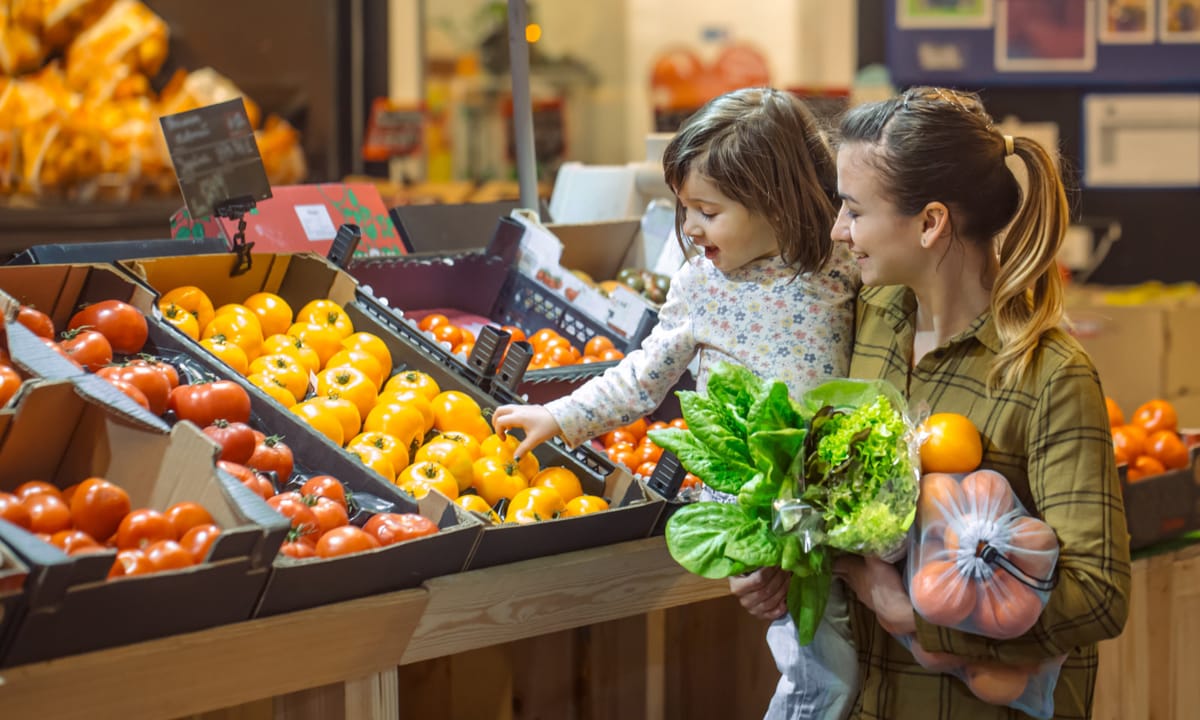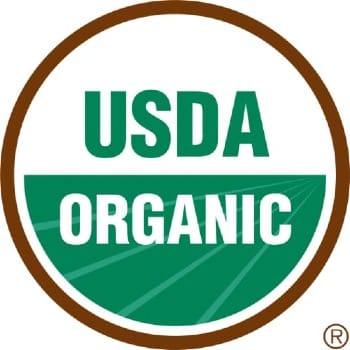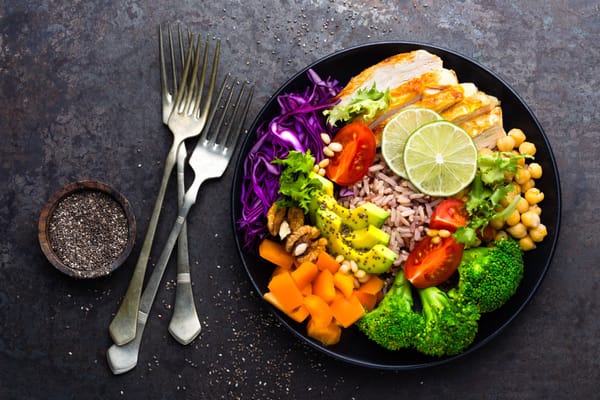Is Buying Organic Food Worth It?
The organic vs. conventional war has raged for years, and for most folks it's not clear whether the added cost of buying organic food is worth it. In this article we'll explain what "organic" really means, bust some myths, and help you decide when you should choose one over the other.

The organic vs. conventional war has raged for years, and for most folks it's not clear whether the added cost of buying organic food is worth it. In this article I'll explain what "organic" really means, why it's different from conventionally-farmed foods, and when you should choose one over the other.
Let's get started!
First, what does "organic" really mean?

USDA Organic is a certification issued by the United States Department of Agriculture (USDA) that ensures agricultural products meet specific standards for organic production. These standards are designed to promote environmentally sustainable practices, animal welfare, and the avoidance of synthetic chemicals and genetically modified organisms (GMOs). Here are the key requirements for obtaining a USDA Organic certification:
- Farmers can't use synthetic pesticides or fertilizers
- GMOs are prohibited in organic production
- Farmers must follow practices to build and maintain healthy soil
- Livestock must have access to the outdoors, be fed organic feed, and not receive antibiotics or growth hormones routinely
- For processed products labeled as "USDA Organic," at least 95% of the ingredients must be certified organic
And the USDA Organic certification isn't free; it costs anywhere from $500 to more than $10,000 to obtain and maintain the official certification.
Is Organic More Nutritious than Conventional Food?
Proponents of organic food often claim that it's more nutritious than conventionally-farmed fruits, vegetables, or meat. But that's not necessarily the case. Several research studies have looked at the nutrition content of organic vs. conventional foods and found that organic foods aren't more nutritious than conventionally-farmed food.
OK, so if you're not getting more vitamins or nutrients from organic, then why bother?
Advantages of Buying Organic
There are quite a few good reasons to buy organic food, especially fresh fruits and vegetables. Let's look into the reasons why.
No Synthetic Pesticides
As we noted above, organic farmers aren't allowed to use synthetic pesticides or fertilizers, such as glyphosate, which has been widely shown to increase cancer risk. And using excess fertilizers can have negative effects on soil and water quality, including algae blooms and dangerous concentrations of nitrates in water.
By buying organic foods, you're reducing your direct exposure to these pesticides and fertilizers through the food and are supporting good farming practices.

Better Animal Welfare
Organic standards often include stricter guidelines for animal welfare. Organic livestock must have access to outdoor space, organic feed, and humane treatment. Also, organic farmers can't administer antibiotics as a preventative measure, as is often the case in concentrated animal feeding operations (CAFO). Antibiotic overuse can cause problems not only for animals but for people as well.
No GMOs
The jury is out on genetically-modified organisms (GMOs), but some people are still hesitant to eat genetically-modified foods. If you'd rather avoid GMOs, then organic is the way to go.
Environmental Benefits
Organic farming practices focus on soil health, biodiversity, and sustainable land management, which means it's more friendly toward the environment and probably more what many of us remember when we think of how our parents or grandparents grew food.
These methods help reduce pollution, conserve water, and promote ecological balance. Buying organic means that you support farming practices that are gentler on the environment, reducing the use of synthetic pesticides and fertilizers that can harm ecosystems and contribute to climate change.

Yeah, but Organic is Expensive
Because organic farming tends to be more labor-intensive, prices are higher than conventional products. So if you can only choose a few organic items, which ones should you prioritize?
The good news is that not all fruits and vegetables are equally likely to be contaminated with pesticides. The Environmental Working Group (EWG) publishes an annual "Dirty Dozen" list, highlighting the top 12 fruits and vegetables with the highest pesticide residues. Prioritizing these items for organic purchase can help minimize exposure to pesticides:
- Strawberries
- Spinach
- Kale
- Nectarines
- Apples
- Grapes
- Cherries
- Peaches
- Pears
- Bell peppers
- Celery
- Tomatoes
The EWG also publishes a "Clean Fifteen" list that highlights the fruits and vegetables with the lowest pesticide residues. If you have to pick and choose, it's generally OK to go non-organic with these:
- Avocados
- Sweet corn
- Pineapples
- Onions
- Papayas
- Frozen sweet peas
- Eggplant
- Asparagus
- Broccoli
- Cabbage
- Kiwi
- Cauliflower
- Mushrooms
- Honeydew
- Cantaloupe
In all cases, it's always a good idea to wash all produce thoroughly before consuming it to remove any potential contaminants such as dirt, bacteria, or residual pesticides.
Choosing organic foods over conventional foods is a decision that can have significant benefits for both your personal health and the environment. By prioritizing organic purchases for items on the Dirty Dozen list, you can reduce your pesticide exposure and support more sustainable farming practices. While organic foods may cost more, shopping smart can help you enjoy the benefits while managing expenses, making it a worthwhile investment in your health and the health of the planet.





